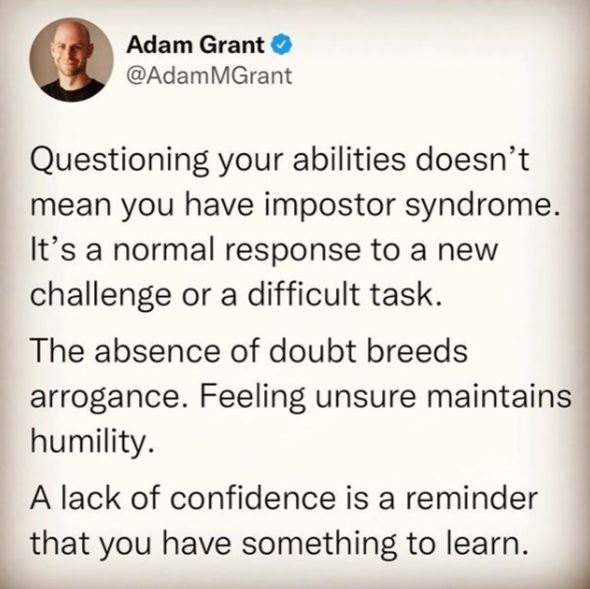Why do so many failure conversations focus on women?
When we talk about failure and imposter syndrome,
why do we focus the conversation on women?
(Heads-up, mini-rant ahead...)
I've been reading Amy Edmonson's new work, "The Right Kind of Wrong: The Science of Failing Well". (Here is a 2-minute clip of her discussing the highlights and it is worth your time to watch.) In the book, she introduces the concept of "intelligent failures", which connected with me. Simply, the idea that there will be failures...we can do our best to plan for them and still they will come. How we learn from them and grow from them makes the difference. This is what normalizing failure looks like.
This got me thinking about my last 7 years as an entrepreneur - where were my failures, what did I learn? Of course, I've had my share! So, I had in my mind to talk about them here, to model being unashamed of them, to help normalize them. Then, something else popped up...
In the last week or so, L'Oreal Paris started an ad campaign on LinkedIn that caught my attention. Each of their "Faces of L'Oreal" (Eva Longoria, Kate Winslet, Andi MacDowell and others) posted a "resume" of their personal setbacks with a focus on how they moved them forward.
Now, I love a "How a Setback Became a Comeback" story
as much as the next person, but...
It struck me as an odd conversation (in an odd location).
I dug into the campaign, thinking there might be some inspiration for my newsletter to you. And that's where things took a turn.
Per L'Oreal, this campaign was designed to help combat the stigma of failure for women. It was sparked by a KPMG report citing this stat from a report of high-performing women in business:
"81% stated that they put more pressure on themselves to perform highly and not fail in business, than their male counterparts"
Stick with me here...
I'm not debating the statistic. I see it in women I coach all the time. And, it feels like a noble endeavor to help combat that stigma...
But, if women put more pressure on themselves than their male counterparts...
Why didn't the campaign feature resumes of MEN who had failed?
Wouldn't that have reduced the pressure more?!
When I looked for the study, I saw that it was from 2020. Yes, 2020!
And, do not even get me started about Imposter Syndrome.
If I see one more women's conference agenda talking about Imposter Syndrome, I think I might lose my mind.
Feeling unsure of yourself and feeling the pressure to perform at a high level is the mark of a motivated, lifelong learner who cares about their work.
Not a woman that isn't confident.
Not a man that isn't confident.
This is being human.
Let me be clear. This is not only a problem women deal with, even though it is marketed to us more often (as though we need one more thing to carry around!).
Last week, an executive I was coaching (a man, C-level, ~ 55 years old) who is thinking about leaving his current employer spent the entire session wondering if someone else would ever hire him. Wondering if he had enough experience. Wondering if he could operate at a high level. You know why he's debating this? Because he's human.
So, I'll leave you with the question I asked him,
Who is applying the pressure?
Chances are good that the pressure is coming from the person you see in the mirror every day. You know who I'm talking about, right? The one who wants to use her gifts and talents in her work. The one who wants to make an impact. The one who actually cares about giving her best.
Yeah, that one. She's amazing. And smart. And powerful. And, human.
So, maybe cut her a bit of slack, ok?


